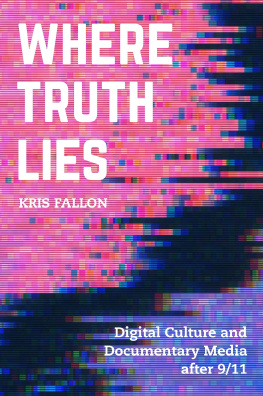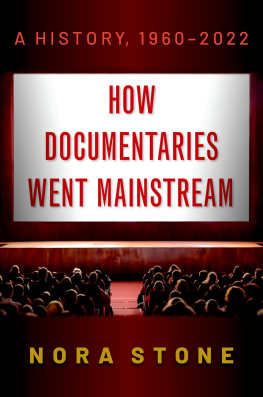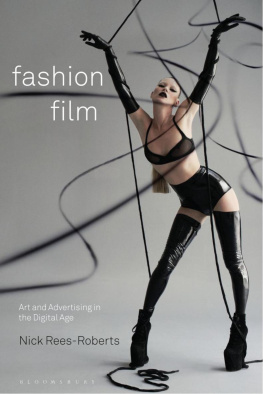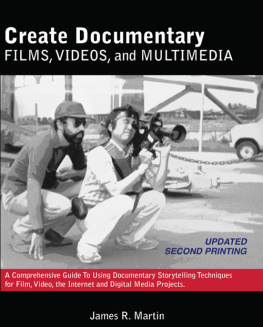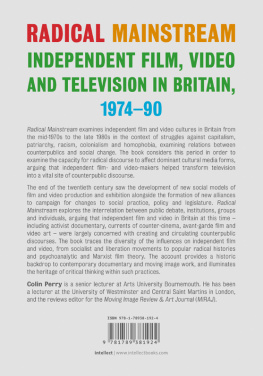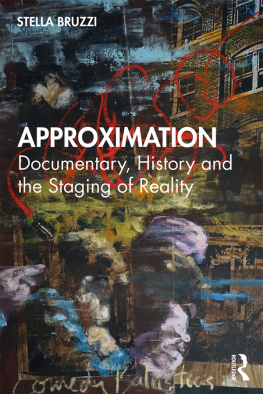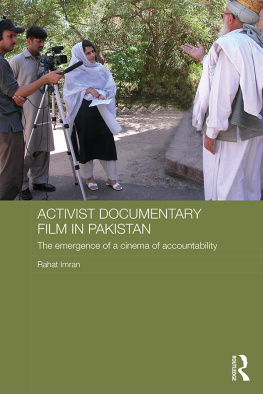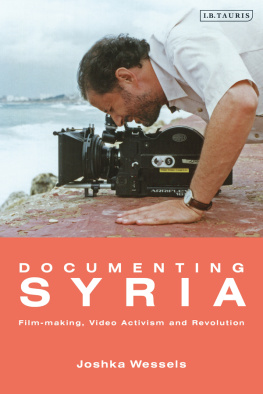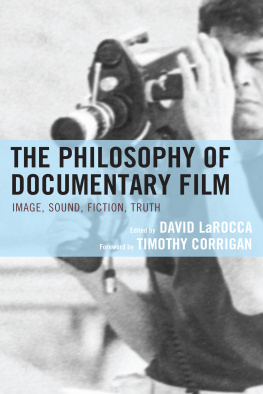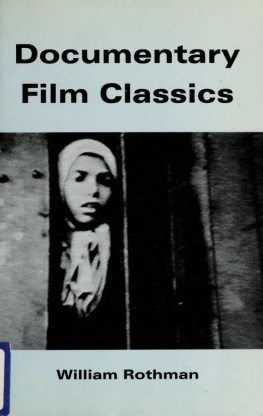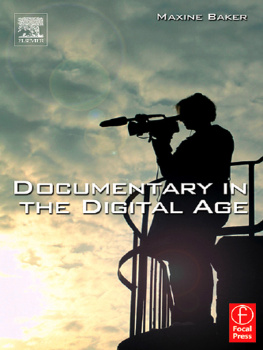Contents
Luminos is the Open Access monograph publishing program from UC Press. Luminos provides a framework for preserving and reinvigorating monograph publishing for the future and increases the reach and visibility of important scholarly work. Titles published in the UC Press Luminos model are published with the same high standards for selection, peer review, production, and marketing as those in our traditional program. www.luminosoa.org
This book is freely available in an open access edition thanks to TOME (Toward an Open Monograph Ecosystem) a collaboration of the Association of American Universities, the Association of University Presses, and the Association of Research Librariesand the generous support of the University of CaliforniaDavis. Learn more at the TOME website, available at: openmonographs.org .
Where Truth Lies
The publisher and the University of California Press Foundation gratefully acknowledge the generous support of the Ahmanson Foundation Endowment Fund in Humanities.
Where Truth Lies
Digital Culture and Documentary Media after 9/11

Kris Fallon

UNIVERSITY OF CALIFORNIA PRESS
University of California Press, one of the most distinguished university presses in the United States, enriches lives around the world by advancing scholarship in the humanities, social sciences, and natural sciences. Its activities are supported by the UC Press Foundation and by philanthropic contributions from individuals and institutions. For more information, visit www.ucpress.edu .
University of California Press
Oakland, California
2019 by Kristopher Fallon
This work is licensed under a Creative Commons CC BY-NC-ND license. To view a copy of the license, visit http://creativecommons.org/licenses .
Suggested citation: Fallon, K. Where Truth Lies: Digital Culture and Documentary Media after 9/11 . Oakland: University of California Press, 2019. DOI: https://doi.org/10.1525/luminos.80
Library of Congress Cataloging-in-Publication Data
Names: Fallon, Kris, 1976 author.
Title: Where truth lies : digital culture and documentary media after 9/11 / Kris Fallon.
Description: Oakland, California : University of California Press, [2019] | Includes bibliographical references and index. |
Identifiers: LCCN 2019018762 (print) | ISBN 9780520300934 (pbk. : alk. paper) | ISBN 9780520972117 (ebook)
Subjects: LCSH: Digital media Political aspectsUnite d States 21st century. | Documentary mass media United States21st century. | Mass media ObjectivityUnited States21st century. | Online social networks Political aspects21st century.
Classification: LCC P95.82.U6 F35 2019 (print) | LCC P95.82.U6 ( ebook) | DDC 302.23/10973 dc23
LC record available at https://lccn.loc.gov/2019018762
LC ebook record available at https://lccn.loc.gov/2019980041
For Alisa, Keaton, and Harper, whose love is the truest truth I know
CONTENTS
ILLUSTRATIONS
ACKNOWLEDGMENTS
Like many books, this one may have a single authors name on the cover but owes its existence to many others. While the final form of the book took shape over the last two years, the questions that it seeks to address have been with me in one form or another across many years, countless conversations, and four institutions.
My thinking on documentary aesthetics and the capacity of moving-image media and digital technology to explore the world has been indelibly shaped by many of the wonderful teachers and mentors with whom I have been fortunate enough to work over the years, including Marina Goldovskaya, Katherine Hayles, Jeffrey Decker, Randy Rutsky, Aaron Kerner, Jenny Lau, Kaja Silverman, Anton Kaes, Hubert Dreyfus, and David Bates. Particular thanks go to the dissertation committee on whom many of these ideas were first foisted: Kristen Whissel, Jeffrey Skoller, Ken Goldberg, Martin Jay, and the fearless chair of that committee, Linda Williams, who set a model for critical thinking and scholarly mentorship that I find myself striving to emulate every day with my own students. Like the field itself, my work on documentary in particular has been shaped immeasurably by Bill Nichols, whose books, seminars, office hours, and ultimate generosity as an adviser and scholar have been fundamental in my own intellectual path.
I am further grateful for the friendship and intellectual challenge posed by many of my colleagues in the wider field whose influence on this particular project has been both intangible and yet instrumental: Alenda Chang, Chris Goetz, Amanda Phillips, Brooke Belisle, Doug Cunningham, Jaimey Baron, Selmin Kara, Jen Schradie, Kris Paulsen, Tung-Hui Hu, Allison Fish, Alessandro Delfanti, Laura Horak, Erika Balsom, and Paige Sarlin. Damon Youngs semioccasional refrain Whats happening with the book? along with his example of tireless, good-natured productivity provided an important source of accountability. Ilona Hongistos advice on framing the final chapter was invaluable, as was her friendship throughout the entire process. Particular thanks go to both Ben Stork and Kevin McDonald, who through countless conversations and tireless revisions provided detailed feedback on virtually every part of the manuscript. Good friends dont always make good readers, but in Ben and Kevin I was lucky enough to find both.
Various parts of the text found their first iteration on panels at conferences including SCMS, Visible Evidence, and others, and I am particularly grateful for the input of fellow copanelists, chairs, and attendees whose chance remarks, questions, and critiques on these occasions have strengthened the arguments made here; they include Lisa Parks, Richard Grusin, Jonathan Kahana, Finn Brunton, Kelly Gates, Julia Lesage, and Elizabeth Cowie. Special thanks go to Ted Nannicelli, Marguerite La Caze, and Tom ORegan for the opportunity to present parts of this at the (New) Visuality: Ethics and Aesthetics symposium at the University of Queensland, and to the many generous interlocutors I encountered there, including Mette Hjort, Robert Sinnerbrink, and Damian Cox.
I would also like to thank my many colleagues at UC Davis both for their support and input on bringing the book project to completion and for further building UC Davis into an amazing place to think about politics and digital media in its many permutations. First and foremost are the two figures whom I consider to be the chief architects of this transformationColin Milburn and Kriss Ravettowith whom I was fortunate enough to collaborate on the Mellon Digital Cultures initiative and who both provided fundamental input on this manuscript in various ways. Thanks also to Jaimey Fisher, Tim Lenoir, Stephanie Boluk, Patrick Lemieux, Joe Dumit, Lynette Hunter, Molly McCarthy, and Mario Biagioli for insights large and small, including simply according me the time and space to write and bring the project to fruition. Jonathan Doucette, Colin Johnson, and Emelie Mahdavian provided useful feedback on several chapters, and Andrea Miller provided invaluable summer research assistance on the entire manuscript. Thanks finally to Eric Smoodin for astute guidance on the publication process and for steering me toward UC Press.
Heartfelt thanks to my editor, Raina Polivka, who has been a stalwart force guiding this project from an unfinished manuscript through the twists and turns of the publication process with patience and confidence in the contribution that the book makes to the field. Dore Brown and Carl Walesa were also tremendously helpful patiently pulling together and copyediting the unusual array of digital and analog material that this manuscript relied. I am further grateful to Alexandra Juhasz and an anonymous reader who both offered generous and insightful input on the framing and scope of the arguments contained here. And particular thanks to Jen Malkowski for extensive and insightful notes on virtually every chapter; this project is unquestionably stronger because of her input. Thanks also to Mackenzie Smith and the University of California, Davis Library and the Dean of Letters & Science for the TOME grant that made the open-access publication of the book possible.

